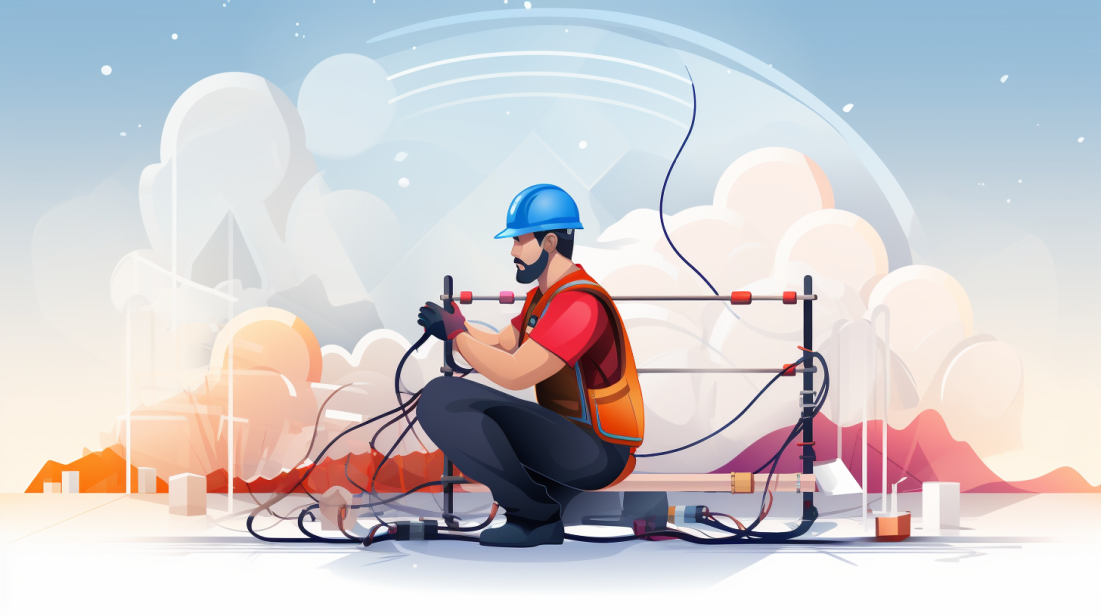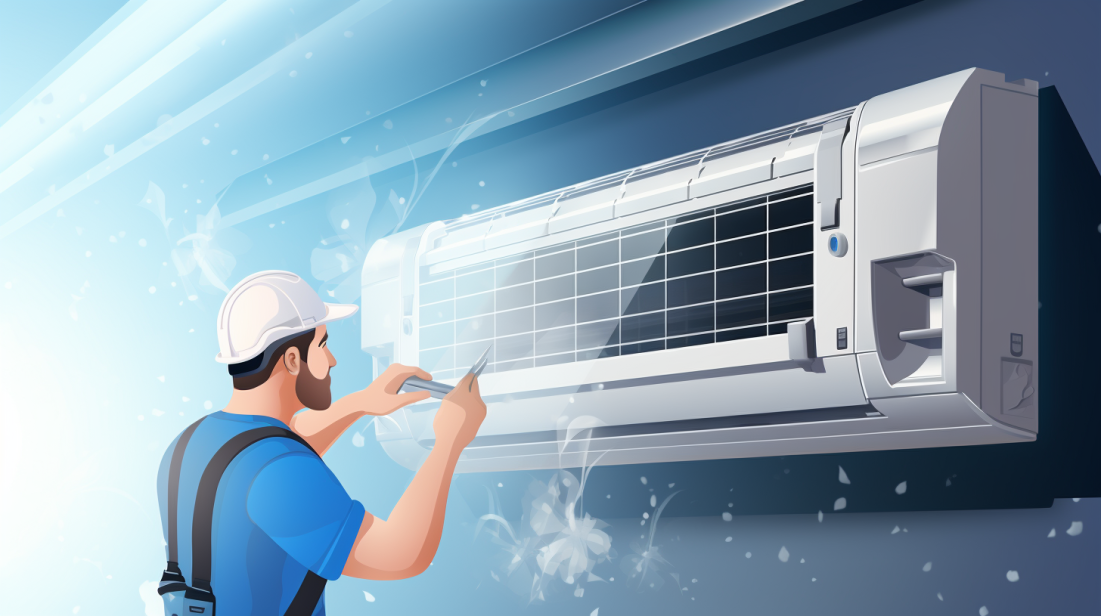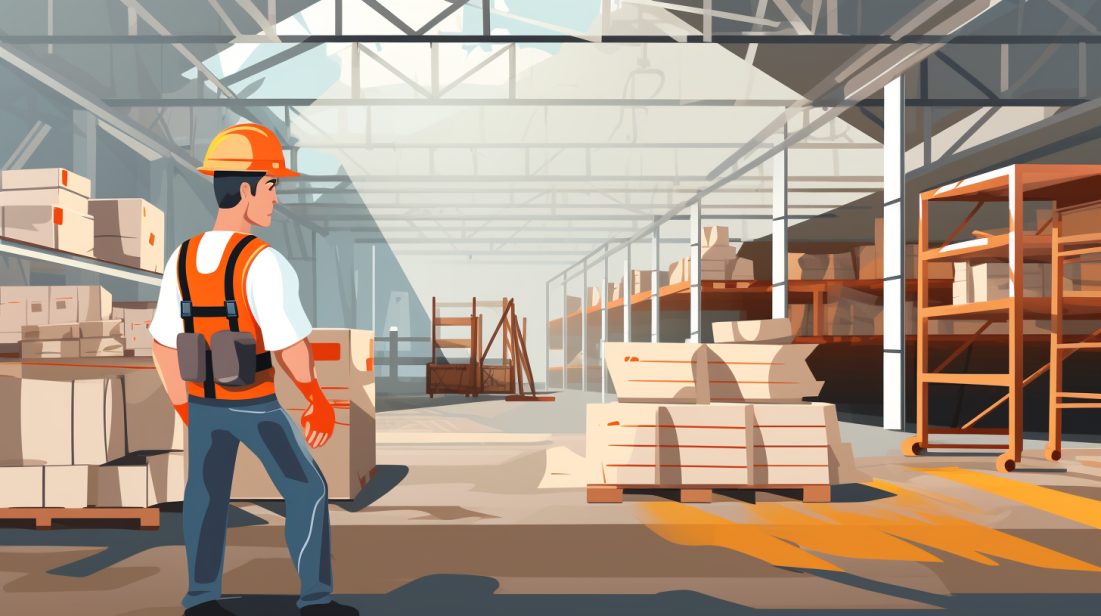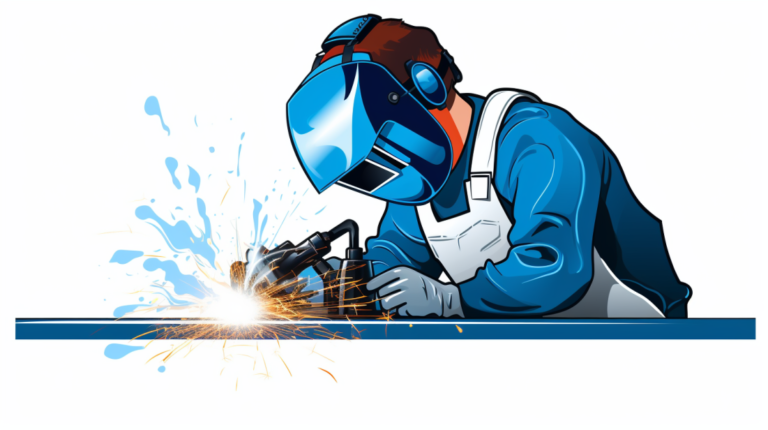The HVAC Career Path: Opportunities And Progression

Choosing a career path can often feel like standing at the foot of an enormous, towering mountain – daunting and slightly overwhelming. I understand these feelings, having navigated the same rocky terrain myself.
However, through this journey, I stumbled upon the rich landscape of opportunities in the HVAC industry – a wide-ranging field offering diverse potential for growth and advancement.
This blog post serves as your compass to navigate through unique roles within this sector- from residential contractors and energetic engineers to charismatic sales associates. There’s even something for our environmentally conscious friends with green jobs focusing on conservation! Intrigued? Let’s journey together into exploring these exciting avenues further.
Key Takeaways
- HVAC jobs are diverse. They include roles like HVAC technician, wind turbine technician, and solar energy tech.
- You can start an HVAC career by learning at a trade school or starting with an entry – level job.
- There are many chances to move up in the industry. Some people become foremen or other managers.
- The U.S expects more HVAC jobs in the future. By 2028, we could see a 13% increase in these jobs.
The Basics of the HVAC Technician’s Job

As an HVAC technician, my work involves a lot of skills. One important part is fixing heating and air conditioning systems. These systems are in homes and big buildings too. So, I need to know how different each one is.
My job also changes with the seasons. In hot months, I fix cooling units so people can stay cool inside. When it gets cold outside, I make sure heaters work right so no one’s home feels like an ice box!
Starting Out on the HVAC Career Path
There are two main ways to start your HVAC career.
- Complete an HVAC program at a trade or technical school. This is a good way to learn the skills you will need on the job.
- Start with an entry – level job at an HVAC company. You can learn as you work and grow from there.
Opportunities in the HVAC Industry

Explore a wide range of roles in the HVAC industry, from technicians to specialists, and learn about employment avenues in renewable energy sectors. These exciting opportunities await you on your journey through the HVAC career path.
Keep reading to discover more!
HVAC Technician/Installer
As an HVAC technician/installer, I work with heating, cooling, and refrigeration systems. I love my job because every day is different. Sometimes I fix broken air conditioners in homes.
Other times, I install new freezers in restaurants or shops. My role can be a challenge as it involves understanding complex systems to find faults and repair them. But the feeling of fixing something and making people comfortable again makes it worth it.
Plus, this job offers great pay and security since there’s always a need for HVAC services!
Automotive HVAC Technician
As an Automotive HVAC Technician, I work on heating and cooling units in cars. The job takes a lot of skill. You learn about many machines in training. People like me install, keep up with, fix and toss out old or broken HVAC systems in vehicles.
There’s always work for us because cars need good heating and cooling systems to run well! This line of work pays well too. On average we earn $54,690 per year. But it could be more based on where you live and how much experience you have!
Refrigeration Technician
As a refrigeration technician, I get to work with different kinds of HVAC systems. My job is to put in new ones and fix old ones. At times, I also take out systems that are not working anymore or too old.
The HVAC/R industry gives me many chances to find good jobs. Plus, the pay is good too! Even when starting out, you can make around $40,663 per year. And it only goes up from there!
Solar Energy Technician
In the HVAC industry, a Solar Energy Technician is a big role. This job helps to make new power from the sun. The work done by these techs aids in energy saving and cuts down on pollution too.
As part of this role, I get to use my skills with electrical parts and problem-solving.
The construction industry needs more Solar Energy Technicians now than before. Many people want their buildings to have solar panels for power. So, they call on me! I help put up panels, fix them when there’s trouble, and do check-ups to keep them working well over time.
Wind Turbine Technician
As a Wind Turbine Technician, I work on tall towers. My main job is to fix and take care of wind turbines. These big machines make power from the wind. They give us clean energy that does not hurt our world.
It’s an important part of green jobs as it helps keep the earth safe and clean.
Specialization Opportunities in HVAC
There are plenty of ways to focus your skill set within the HVAC industry. You could choose to work on heating and air conditioning systems in homes as a residential contractor, service technician or installer.
If you enjoy working with different tools, maybe you’d be good at being a refrigeration technician. In this job, you’ll likely be fixing large cooling units.
Another option is to become part of the sales and marketing team for an HVAC company. As a sales representative, you get to meet many people and help them figure out which heating or cooling product is best for their needs.
Or maybe automated controls excite you more? Then consider becoming a building automation systems manager or controls installer! These jobs involve using new tech to control heat and cool air flow in big buildings.
If helping our planet stay healthy matters most to you then green jobs are perfect for your career path! They focus on saving energy, inventing new energy sources or cutting pollution down from current HVAC systems.
Career Opportunities Beyond Hands-On Equipment Work
There are many jobs in the HVAC field that do not need hands-on work. You can get a job doing sales and marketing for an HVAC company. This job would have you selling HVAC systems and services to people who need them.
Other jobs do not need much physical work either. A design and engineering role could be right for some people. As a mechanical engineer with HVAC skills, your day might involve designing new heating, cooling, or refrigeration systems.
You might also like working as a code inspector if you like rules and details. The job of these inspectors is to make sure all electrical and mechanical systems meet building codes when they are put in place.
Some people may want to help our Earth by working in green jobs related to energy saving and cleaner ways of making energy. These roles can be found within the industry too.
Finally, you could always teach what you know as an instructor!
Projections for Growth in HVAC Jobs
The HVAC industry is gearing up for substantial growth over the next few years. The U.S. Bureau of Labor Statistics predicts a 13% increase in HVAC field employment from 2018 to 2028. The following table provides a detailed overview of this projected growth.
| Year | Projected Growth in HVAC Jobs |
|---|---|
| 2018 | Baseline |
| 2019 | 1.3% increase |
| 2020 | 2.6% increase |
| 2021 | 3.9% increase |
| 2022 | 5.2% increase |
| 2023 | 6.5% increase |
| 2024 | 7.8% increase |
| 2025 | 9.1% increase |
| 2026 | 10.4% increase |
| 2027 | 11.7% increase |
| 2028 | 13% increase |
These figures underscore the promising opportunities in this industry. If you’re thinking about starting a career in HVAC, now is an excellent time. The demand for HVAC technicians is set to rise, providing numerous job opportunities for aspirants.
HVAC Technician Salary & Career Outlook
As you consider the HVAC career path, it’s essential to have a clear understanding of the potential salary and career outlook. Data from the U.S. Bureau of Labor Statistics (BLS) indicates that the median annual wage for HVAC mechanics and installers was $48,730 in May 2019. However, this figure can vary significantly depending on factors such as location, years of experience, and industry specialization.
| Job Title | Median Salary (2019) | Job Outlook (2018-2028) |
|---|---|---|
| HVAC Technician/Installer | $48,730 | 13% increase |
| Automotive HVAC Technician | $40,710 | 5% increase |
| Refrigeration Technician | $48,730 | 13% increase |
| Solar Energy Technician | $44,890 | 63% increase |
| Wind Turbine Technician | $52,910 | 57% increase |
The career outlook for HVAC professionals is also highly promising. The BLS projects a 13% increase in HVAC employment from 2018 to 2028. This growth is attributed to the development of new heating and cooling technologies, as well as the need for system upgrades and replacements. So, whether you’re just starting out or seeking to advance in your HVAC career, the industry offers promising opportunities and a progressive career path.
Conclusion

The HVAC path has a lot to offer. It’s a career full of choices and chances to grow. There are jobs for all skill levels. You can keep learning and climbing up in your career. The future for HVAC is bright!
What Are the New Opportunities and Growth in the Phlebotomist Career Path?
The phlebotomist career prospects are expanding rapidly, offering new opportunities for growth. With advancements in medical technology and an aging population, the demand for qualified phlebotomists is increasing. As healthcare facilities diversify their services, phlebotomists are now required in a variety of settings, including hospitals, clinics, research laboratories, and blood banks. This expanding field provides a promising career path for individuals interested in a healthcare profession that combines patient interaction and technical skills.
FAQs
1. What is an HVAC career map?
An HVAC Career Map is a guide showing many jobs in the climate control technology field. It shows job levels from entry, like a warehouse associate and residential trainee, to advanced roles like senior operations systems analyst.
2. How can I start my journey in the HVAC/R Service Trade?
Starting as a tradesperson or apprentice improves your skills for roles like service technician and residential installer. After that, you may become a journey-level technician or even a commercial contractor.
3. Are there different sectors within the HVAC industry?
Yes! Jobs span sectors such as residential, commercial, sales and marketing, automated controls and design & engineering sectors.
4. What types of tasks do technicians perform in the residential sector versus the commercial sector?
In both sectors tasks include installation and maintenance of heating, ventilation, and air conditioning (HVAC-R) systems but on different scales: Residential properties usually involve individual homes while commercial includes larger buildings like office spaces.
5 .What kind of work does one do in project management within this industry?
HVAC Project Managers handle things related to new heating and cooling technologies or energy efficiency programs.They often deal with system performance inside both commercial properties and residential properties too!
6 .Are there opportunities for green careers within HVAC?
Absolutely! The shift towards energy conservation opens doors for roles focused towards alternative energy solutions,pollution reduction,and recycling.Like building automation systems engineer who focuses on designing efficient use of energy.






